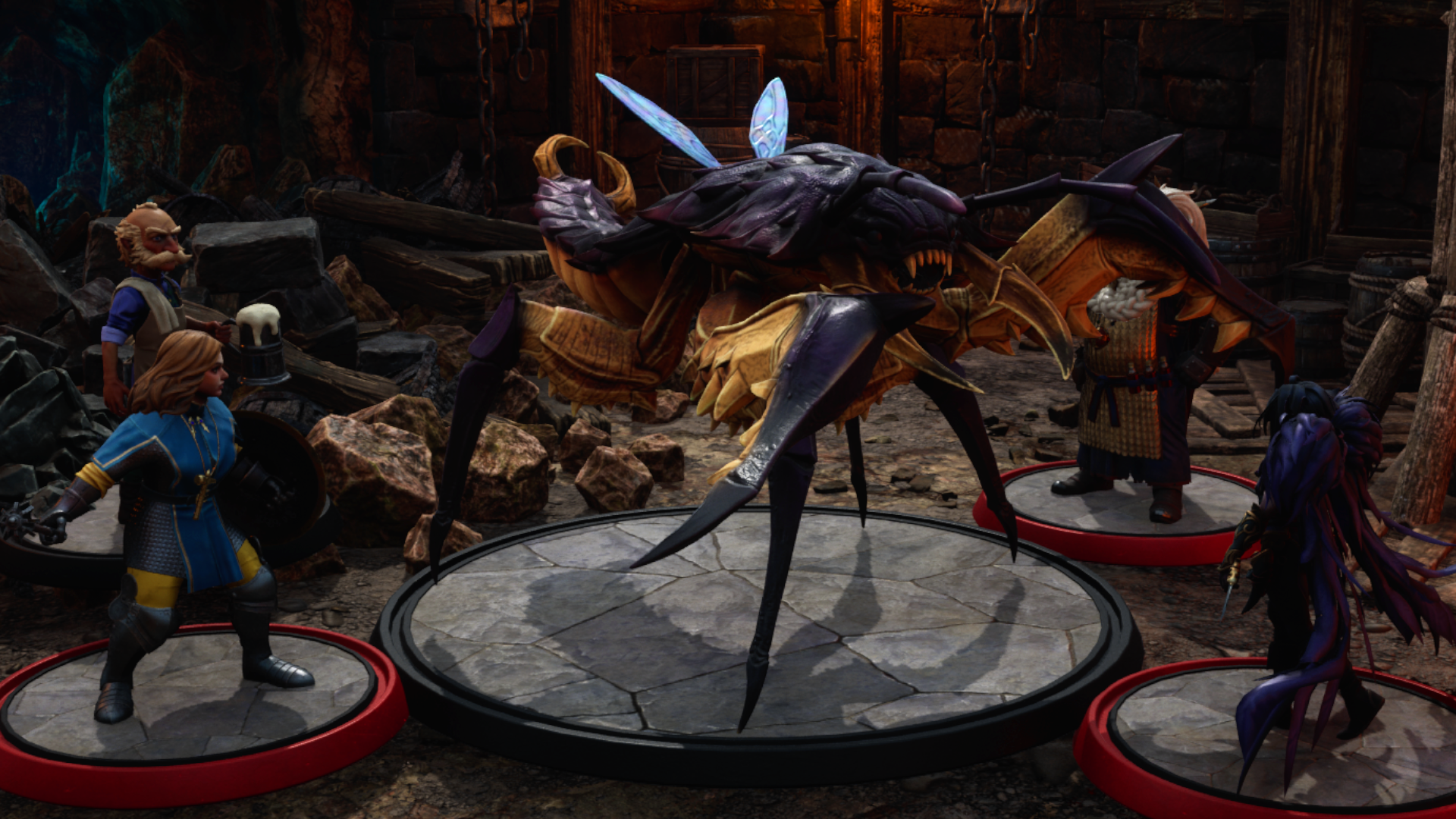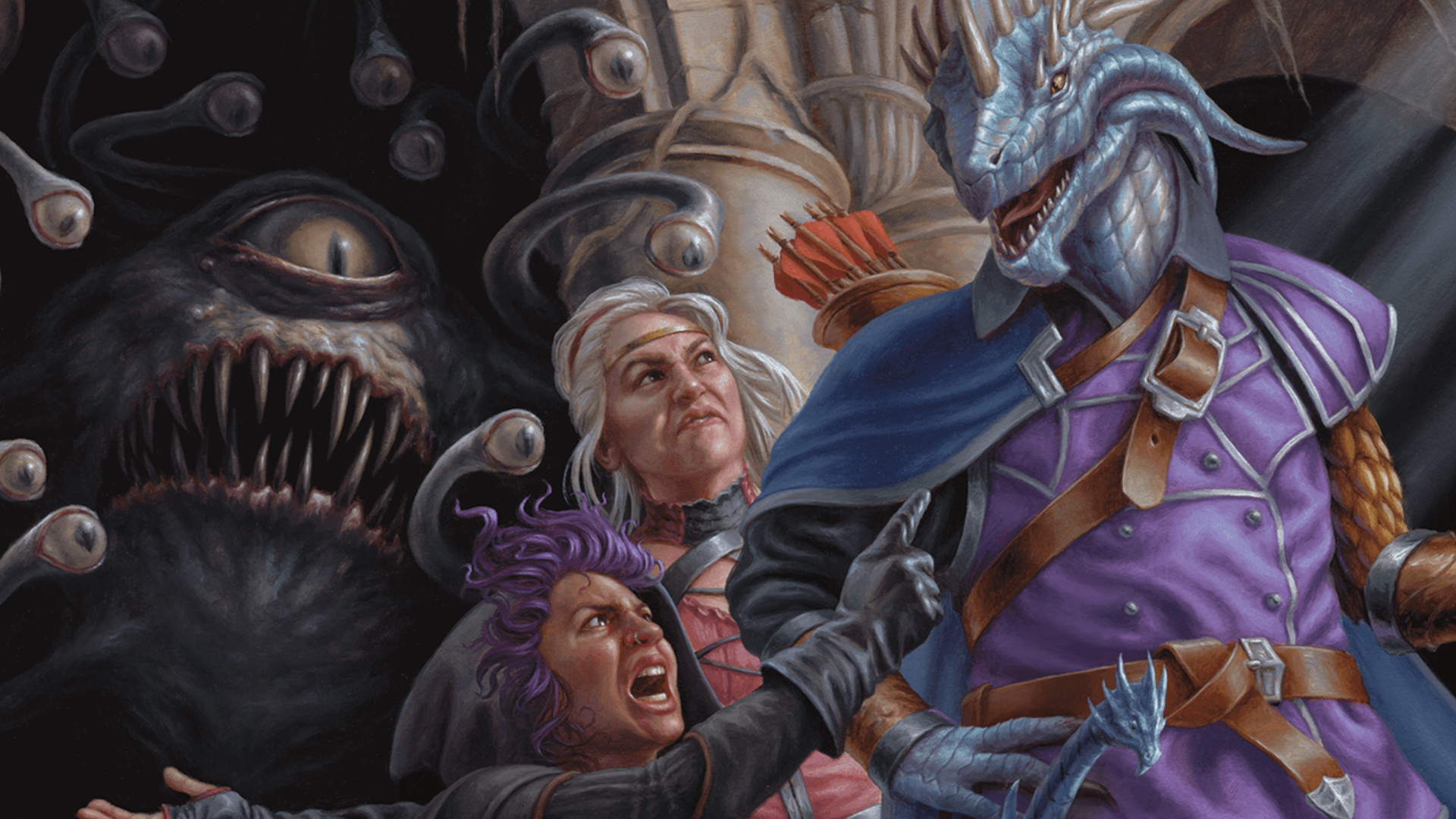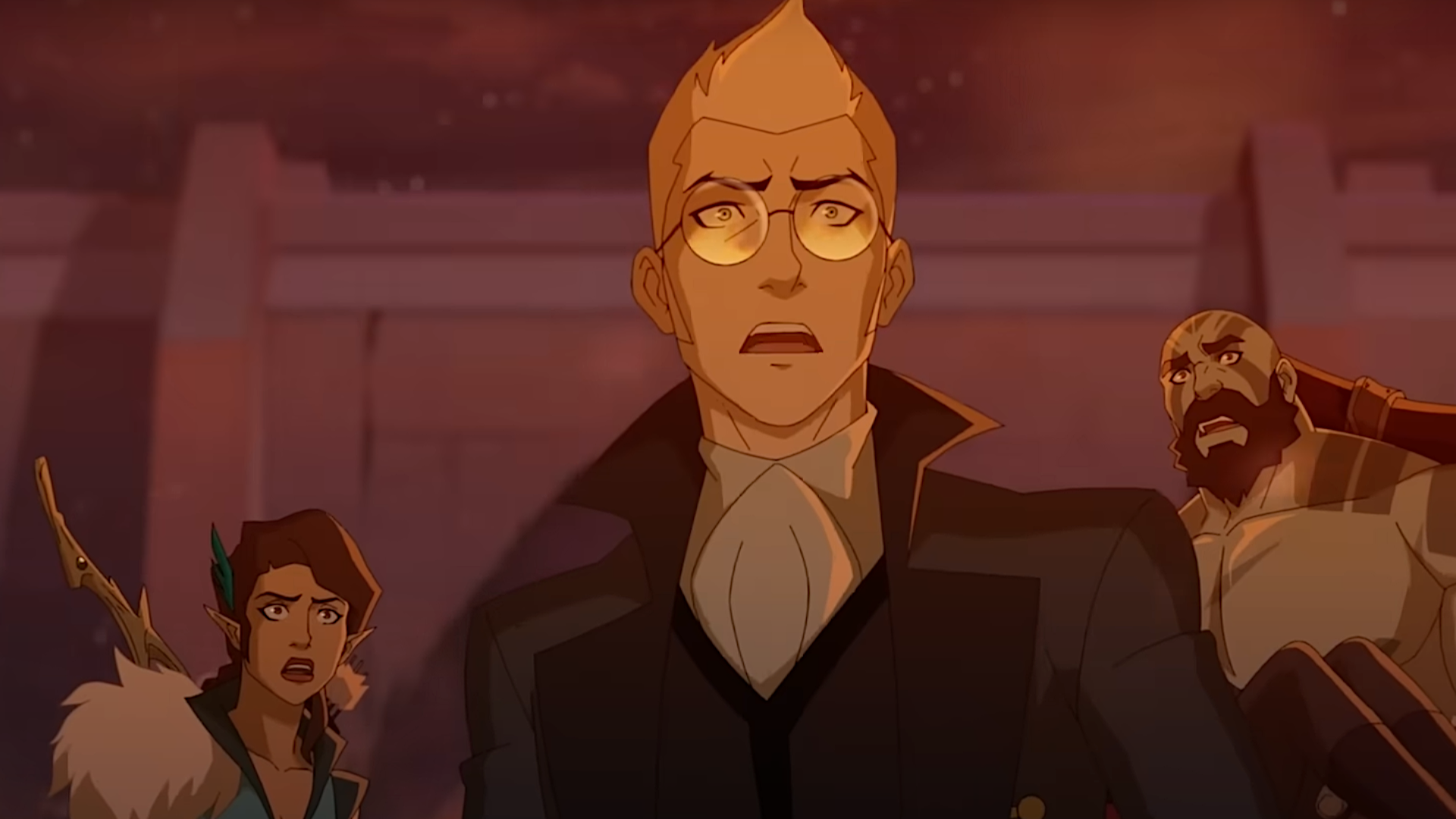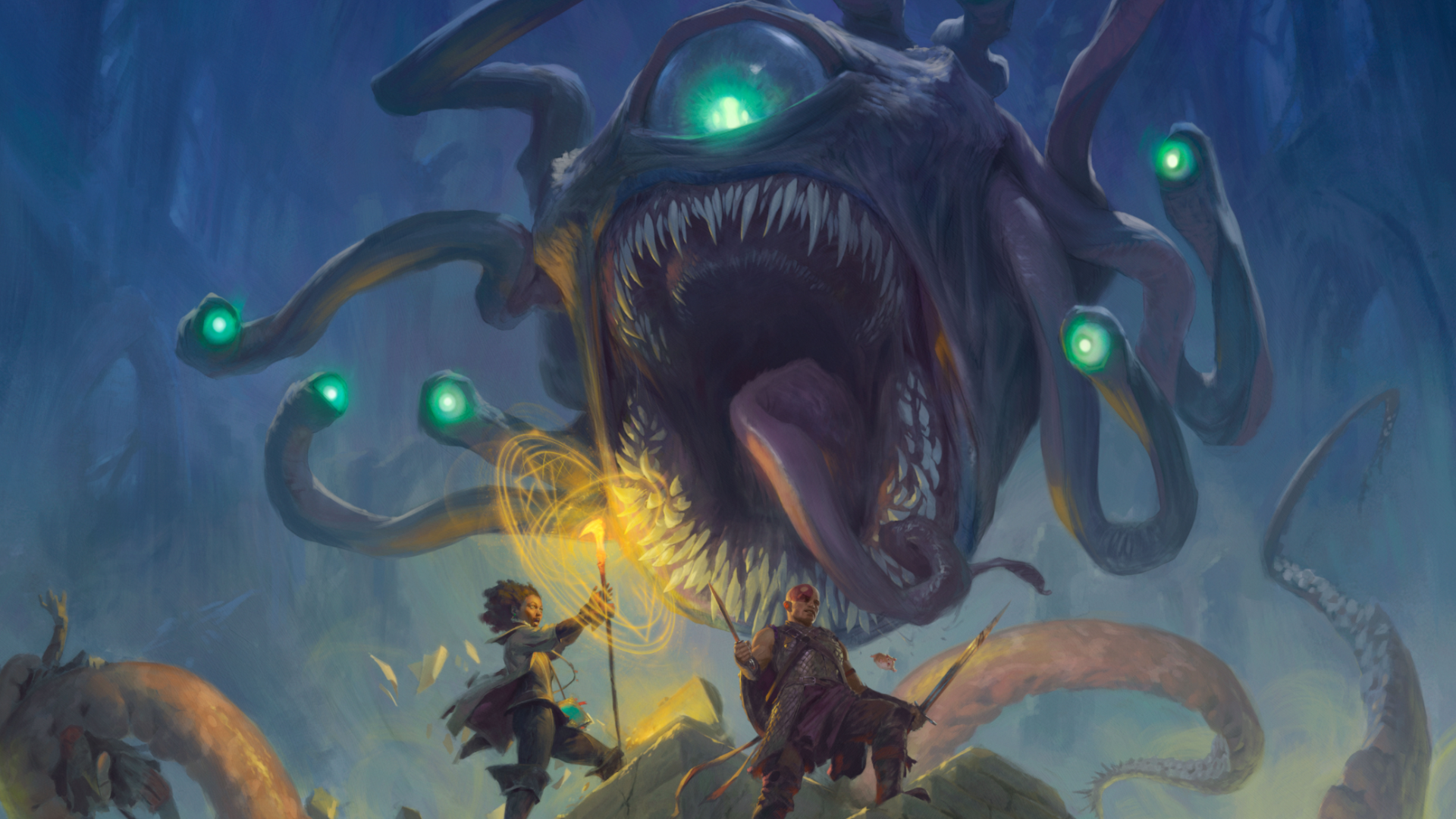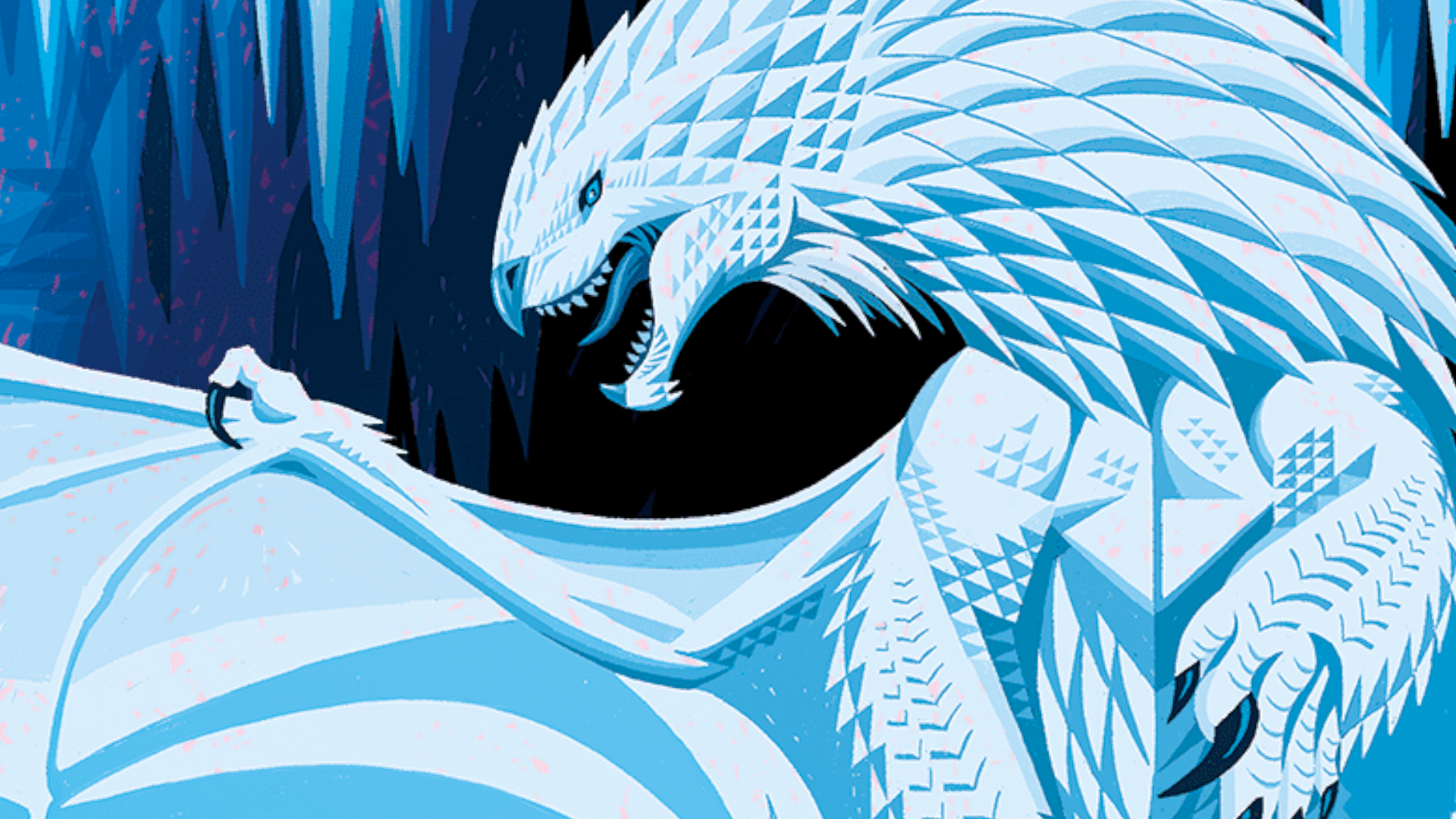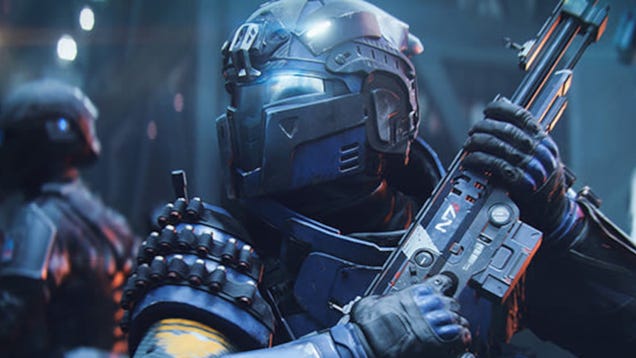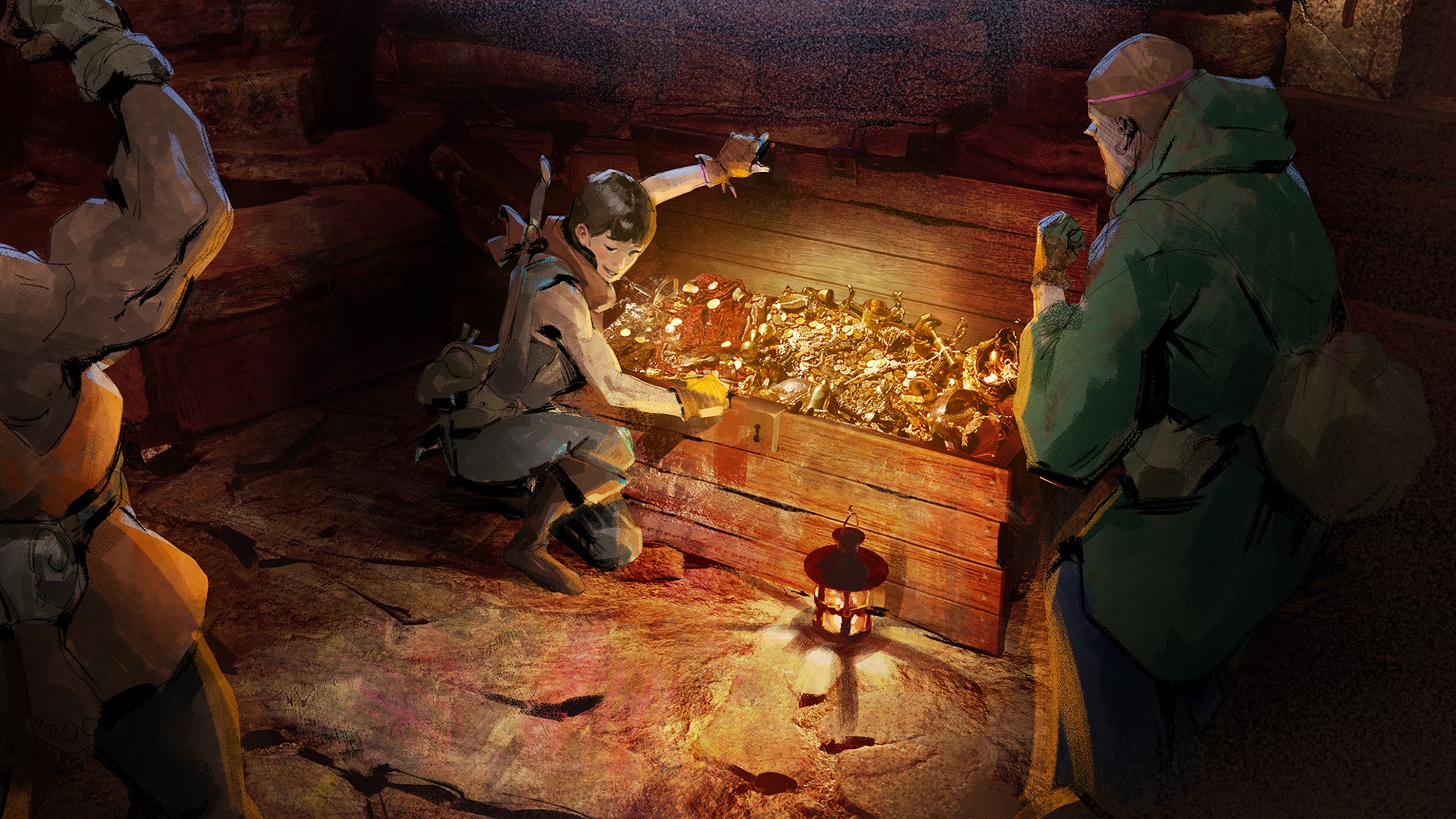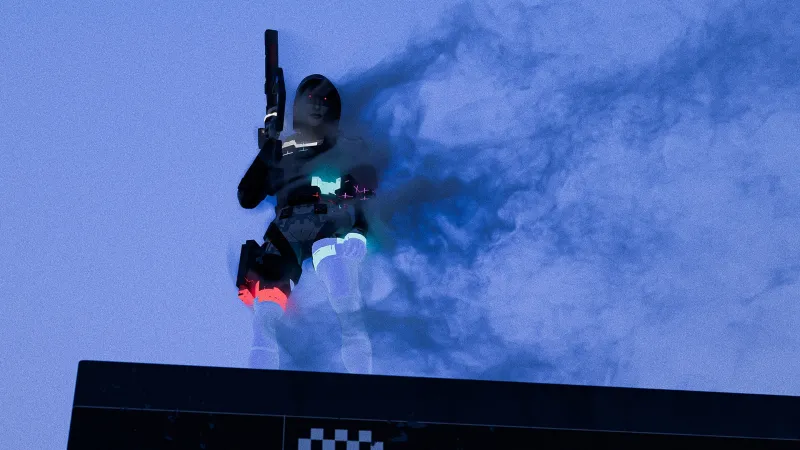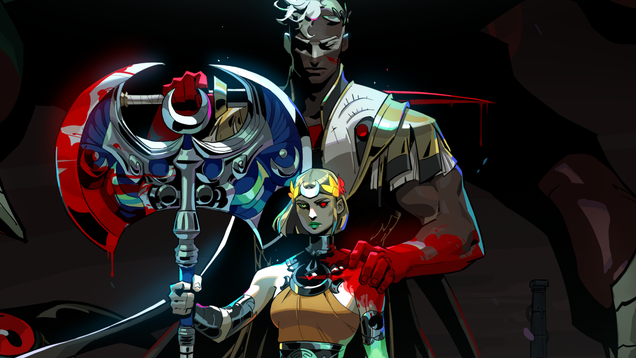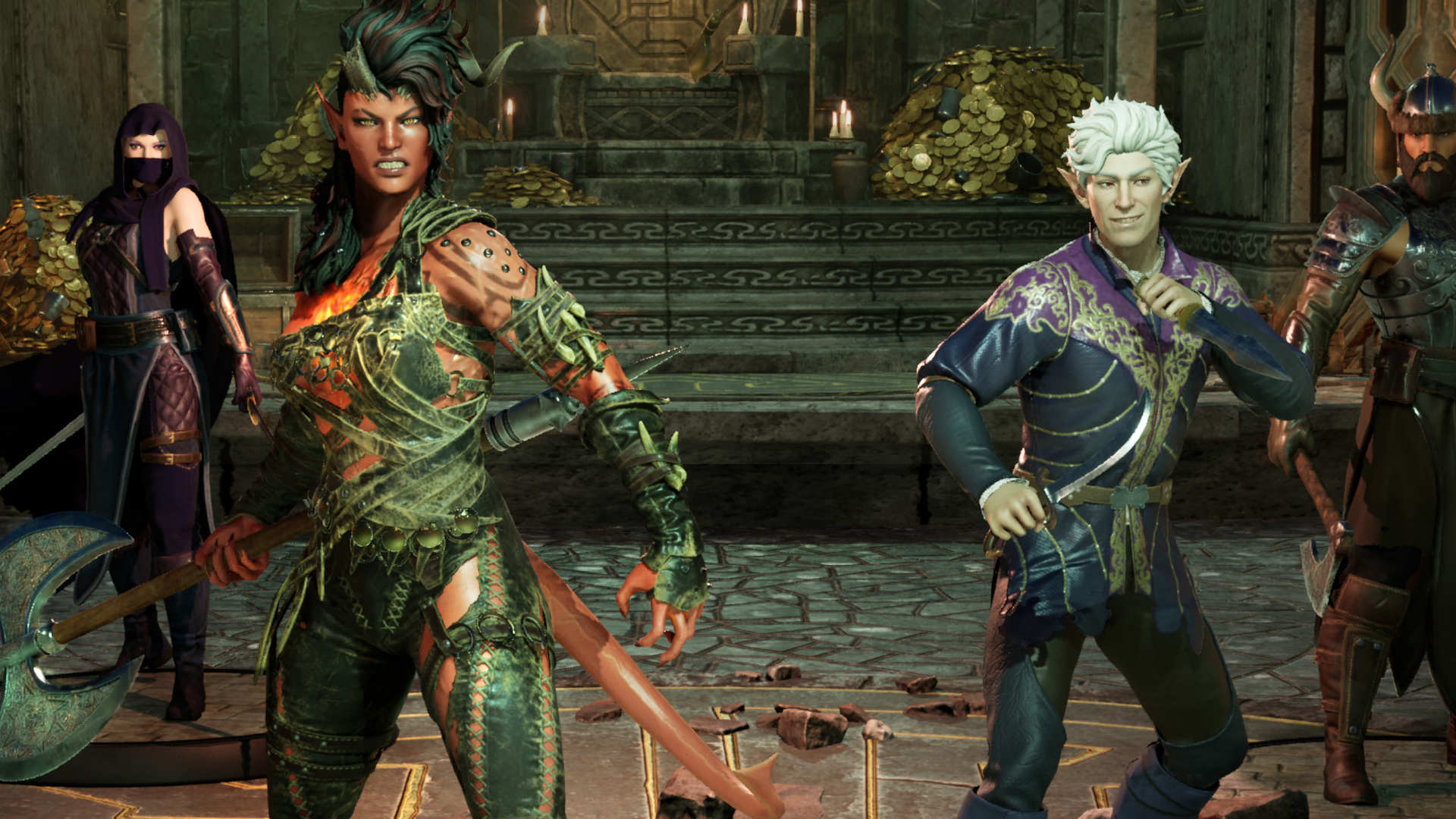
The instant collapse of Sigil is just the latest in a long line of missed opportunities and self-inflicted wounds.
Dungeons & Dragons might be, if trends continue, one of the most mishandled success stories I’ve ever seen. And, if my powers of prophecy are correct, we’re starting to approach the low bend of a 10+ year arc where Hasbro, the parent company of D&D creators Wizards of the Coast (WoTC), has continually fumbled the bag in just about every way it possibly could.
Usually when I hammer out a timeline like this, I work in chronological order—but we’re going to start in media res. It’ll actually help us to work backwards: Starting with Baldur’s Gate 3.
In case you hadn’t heard, we rather like Baldur’s Gate 3 here at PC Gamer. While not all of us are CRPG-heads, those of us that are would probably consider it one of the all-time greats. Our own Fraser Brown even called it “the pinnacle of the genre” in his Baldur’s Gate 3 review.
For Hasbro and WoTC, it was the savviest deal possible for the “world’s greatest role-playing game”—grabbing one of the best RPG development studios of our time to make something so far up its alley, it’s like it was born for the job. Larian Studios, a shining goose to end all geese, spent several years meticulously creating a golden egg.
Except in this metaphor, the goose has now waddled off, leaving Hasbro to run around carrying its egg-treasure with a brow full of flop-sweat—wide, panicked eyes looking for a place to actually put it. Their first move? Lay off most of the people who got Larian to make the thing in the first place. Yeah, I don’t know either.
The goose has now waddled off, leaving Hasbro to run around carrying its egg-treasure with a brow full of flop-sweat.”
I want to be clear: The idea that Larian decided not to make another Baldur’s Gate game because of these layoffs is pure conjecture, and countermand to Swen Vincke’s words on the subject. It’s clear that the developer simply wanted to move onto games it was more passionate about, lest it consign itself to the geese farm forevermore.
Not to mention, there’s plenty of reasons why you might want to make your own IP rather than continuing to pay dividends to another company—BioWare did something very similar, hopping from Knights of the Old Republic to Mass Effect back in the day.
But, like, Hasbro can’t have helped, right? As a studio, Larian’s extremely outspoken about the kind of cost-cutting, short-sighted nonsense it pulled. Bare minimum, it would’ve been a point in the ‘cons’ column. Still, as Vincke has demanded—my tinfoil hat is off. The point is, Hasbro won’t get another D&D game out of Larian. So what now?
Sigil’s a bad sign
A huge amount of TTRPG players have, due to the struggles that come with trying to organise five adults into the same room every week, turned to Virtual Tabletops (VTTs) to get their fix. I’m one of them: Most of my games are online.
WoTC decided to muscle in on the territory itself with Sigil—its own glossy VTT, a one-stop shop for all your D&D fun. Sensibly, Hasbro decided to put Baldur’s Gate 3’s cast in it as minis—which, while kinda kitschy, is in itself pretty cute. There’s some table that’d get a kick out of Astarion guest-starring in their campaign, I’m sure.
Except Sigil’s not going to be the next big thing, and it might barely be a ‘thing’ at all. Sigil went into playtesting with a whimper, didn’t quite work, and then Hasbro had 90% of the people making it laid off because, reportedly, “Hasbro treated Sigil like a video game instead of a VTT and at no point cared to understand the difference.”
So what’s Hasbro doing with Baldur’s Gate 3? The answer is an uncertain ‘er’. Certainly, the line is that they’ve got exciting news to share just around the corner (who doesn’t) but just listen to senior vice president of Digital Strategy and Licensing at Hasbro, Eugene Evans, as he spoke to PCG’s own Robin Valentine last year:
“I think it’s too early to express specifics and I think that there’s a much bigger question about how we approach Baldur’s Gate in the future … But I would like to think that all of those characters, for the sake of the fans, could potentially appear in future products.”
And look, taking your time is sensible, but this was nearly a year on from Baldur’s Gate 3’s release—and Hasbro’s plans haven’t really moved on much since. To paraphrase, it’s been a lot of ‘we’re thinking about lots of stuff, just trust me, bro’.
Sigil went into playtesting with a whimper, didn’t quite work, and then Hasbro had 90% of the people making it laid off.”
I’ll tell you what Hasbro is doing: Ramming its feet into PR disasters. Just this week, a Stardew Valley mod had a DMCA flung at it right after Larian’s Swen Vincke spoke well of it. They rescinded the strike, mind, but it’s a PR blunder that’s downright typical of the company by now. More on that later.
I think it’s clear, at this point, that Hasbro has no idea what to do with the egg. I mean, they put BG3 characters in Magic: The Gathering, because I wager that’s one of the few things Hasbro knows how to make money with. But in my mind, what Hasbro needs to do is keep making good D&D videogames with great studios—not simply trotting out Karlach like she’s a team mascot.
And sure, maybe the company just needs some time to cook—but Hasbro’s track record doesn’t inspire confidence. This is simply how the company operates, and I predict we’re destined to watch a toy and boardgame giant slip on the same banana peel over and over again.
Critical fumb-role
Let me take you back in time. It’s March, 2015, approaching one year on from D&D’s new 5th edition (5e). Now, 5e isn’t doing terribly for itself—and, to be fair, WoTC did a solid job. It threw off the stink of 4e’s poor sales (and worse community reception) and returned to its roots, grabbing parts of 3.5 and reworking them into a far more accessible package.
But Critical Role? Now that was a tidal wave. In case you’re unfamiliar, Critical Role is an ‘actual play’, a live streamed game of D&D run by voice actor Matt Mercer and his equally industry-experienced coterie of enthusiastic nerds.
Its first episode aired and, simply put, it exploded. The ravenous beast of fandom sunk its jaws into the thing—heaps of fanart and fanfiction, the kind of liquid lifeblood that sends media properties into the stratosphere. In just a year, each episode of Critical Role had a million minutes watched each. Thousands of viewers would hop in to watch people play D&D live, every week, and suddenly wanted to play it themselves.
That’s not to say Critical Role was the sole author of this renaissance, mind—The Adventure Zone, itself inspired by a rising tide of D&D podcasting, had started a year beforehand, and it would soon be joined by a flood of excellent podcasts and shows. High Rollers, Dimension 20, NADDPODD, Dungeons & Daddies… Netflix’s Stranger Things also helped bring D&D into the spotlight in 2016.
But Critical Role by far seems to have made the most out of itself—transforming into a fully-fledged media company with enough chutzpah to crowdfund its own Amazon series.
This was very, very good news for Hasbro and Wizards of the Coast—and to be fair, it’s not like they didn’t make some headway. Critical Role, for example, played a huge part in D&D Beyond’s popularity, with routine advertisements for the product. It was ultimately a really smart move for Hasbro to pounce on a digital platform for their game at the height of its popularity.
Except they didn’t actually do that, did they? Because Hasbro didn’t make D&D Beyond, and bought it after it became successful in 2022, but I mean—hey, that’s just details, right?
Regardless, WoTC continued to quietly enjoy this newfound popularity with adventure books and supplements—some of which were made in conjunction with Critical Role—but that was pretty much it. They benefitted from a whole ecosystem of creators nourished by new fans to the hobby, too, effectively doing free marketing for the game by making their own homebrew tomes full of monsters and rules.
Then, in 2023, Hasbro took out a big gun and shot itself in the foot by trying to rewrite its Open Game License so, uh, nobody could do that. For almost a month, Hasbro became the villain of the TTRPG internet—until it eventually tucked tail and decided it was being very, very stupid. In April of the same year, it sent the Pinkertons after a Magic: The Gathering player. This did not help.
For almost a month, Hasbro became the villain of the TTRPG internet.”
I’m not going to say D&D had some mass exodus away from the system—quite a few people stopped playing it, but not nearly enough to make a dent. Plenty of the shows from 5e’s golden age of streaming are still playing the system because it’s nice and comfy. But it’s no coincidence that Critical Role would eventually start making its own rulesets like Candela Obscura and Daggerheart, and its Amazon Series has enough legally-distinct departures that Hasbro isn’t profiting off it directly.
Mind, CR certainly wasn’t alone—the OGL blunder drove other companies, known for making D&D material, towards the creation of their own systems instead. Take Kobold Press, one of the most prolific creators of 5e content, which is currently cooking up its own competitor. Paizo’s Pathfinder also hopped in to take their share of the dragon’s hoard, debuting its own more equitable OGL by the name of ORC.
10 years of success and not a big, Hasbro-original idea to claim credit for. But hey, it’s time for WoTC to cook up a new edition—a real chance to inject some new lifeblood into D&D. An opportunity for a fresh take on the formula, maybe? One that borrows popular systems from other RPGs that caught D&D’s tailwind and—what’s that? It’s only a rules revamp? Ah.
Here again
I’ve shared my thoughts on the 2024’s Player Handbook, Dungeon Master’s Guide, and Monster Manual, and I’m not going to waltz in here and tell you any of them are bad. As a matter of fact, I’ve got plenty of nice things to say about them.
The presentation is excellent. WoTC hired a whole host of brilliant artists to beautify their pages in a way that’s really very charming—content-wise, it’s more of a mixed bag, but there are plenty of screws that have been tightened on the bugbears of 5e’s systems to make it more streamlined.
You might wince at that statement (it’s okay, I’m right there with you) but it’s arguably the smartest move based on what D&D has become—which is to say, a jack-of-all trades fantasy game. It has just enough crunch to satisfy the min-maxers, with a simple enough entry that your storytellers aren’t hemmed in.
It’s the “should we just get pizza” of TTRPGs, and in a hobby where the biggest limiter is time commitment, that’s an important niche to fill. I could yap about how much I prefer PF2e all day, but let’s be real, most tables are going to see its list of 4,000+ feats and get a headache.
Still—the fact that WoTC didn’t feel confident enough to reinvent much of anything after 10 years signals how paralyzed the entire operation has become, right? After a decade of successes, and after a massive, hobby-wide controversy seemingly couldn’t sink it, D&D’s next big move was to equip you with basically the same game for the next 10 years. No innovation, no progression, just a slightly different angle to the wheels spinning in the dirt.
I might be calling the match a little early, and I want to be clear—I think WoTC has a lot of talented, eager, enthusiastic, and invested designers working for it. But when it comes to Hasbro, the overarching toy-making megagiant, and its leadership? I have vanishingly little confidence it knows what to do with any of its victories.
From the dragon’s jaws of victory
Part of it might just be the fact that TTRPGs are hard to make money with. Hasbro’s other properties, like Magic: The Gathering, create enormous value just by existing. Board games also have an easier time transitioning to the digital age, with apps like Monopoly Go! Hauling in $200 million every month in their heyday.
Yet it almost feels like D&D is uniquely cursed. Take the movie, for example: Honour Among Thieves. It’s really funny, entertaining, and passionate, and it even had broader appeal to a more mainstream audience without upsetting TTRPG vets, something I’d have thought impossible. I unironically really liked it, and would encourage anyone to give it a watch if pressed.
It also only made $208 million on a $150 million budget at the box office—if you’re keeping score, that’s $58 million in profits (less, if that $150 million didn’t include advertising costs). Or 1/4th of a month of Monopoly Go! At its prime, even in a best-case scenario where marketing was done cheap. Oof.
After 10 years of success largely dropped in its lap, what does Hasbro—or Wizards of the Coast—have to show for itself? Let’s tally things up:
- Critical Role is its own company, now peddling its own bespoke systems.
- The OGL fiasco alienated a whole network of creators, who were basically advertising the game for free.
- The studio behind its biggest licensing deal immediately went on to different, better things—taking its goodwill and faith with it.
- D&D Beyond was bought by Hasbro years after it became popular, and is now struggling to become a more fully-featured VTT.
- One really good movie, which was somehow still a miraculous let-down.
- Sigil, its first real, big-name attempt to do something new, is dead in the water before it even started swimming.
- D&D’s 2024 rules revamp, while commendable, is basically the same game it was 10 years ago.
I don’t mean to paint a picture of complete failure here—D&D is by far still the most popular tabletop game, and I don’t see that changing any time soon—but the truth is, Hasbro’s comical fumbling with Baldur’s Gate 3 isn’t some new, weird behaviour. It’s the norm. This is a company that, from an outsider’s perspective, barely understands its own product, doesn’t really care to, and is growing increasingly impatient with its inability to turn it into a Magic: The Gathering.
There are systems, products, and companies that would kill for D&D’s ubiquity and household name—it’s just a shame that the people on top are more enthused about how cool AI is than anything else. I’d love to be proven wrong—for Hasbro to make a move that tells me it actually understands the liquid gold leaking out from between its fingers. But at this point I’ve spent a decade holding my breath—and lemme tell you, I don’t think my Con score’s high enough to last much longer.
